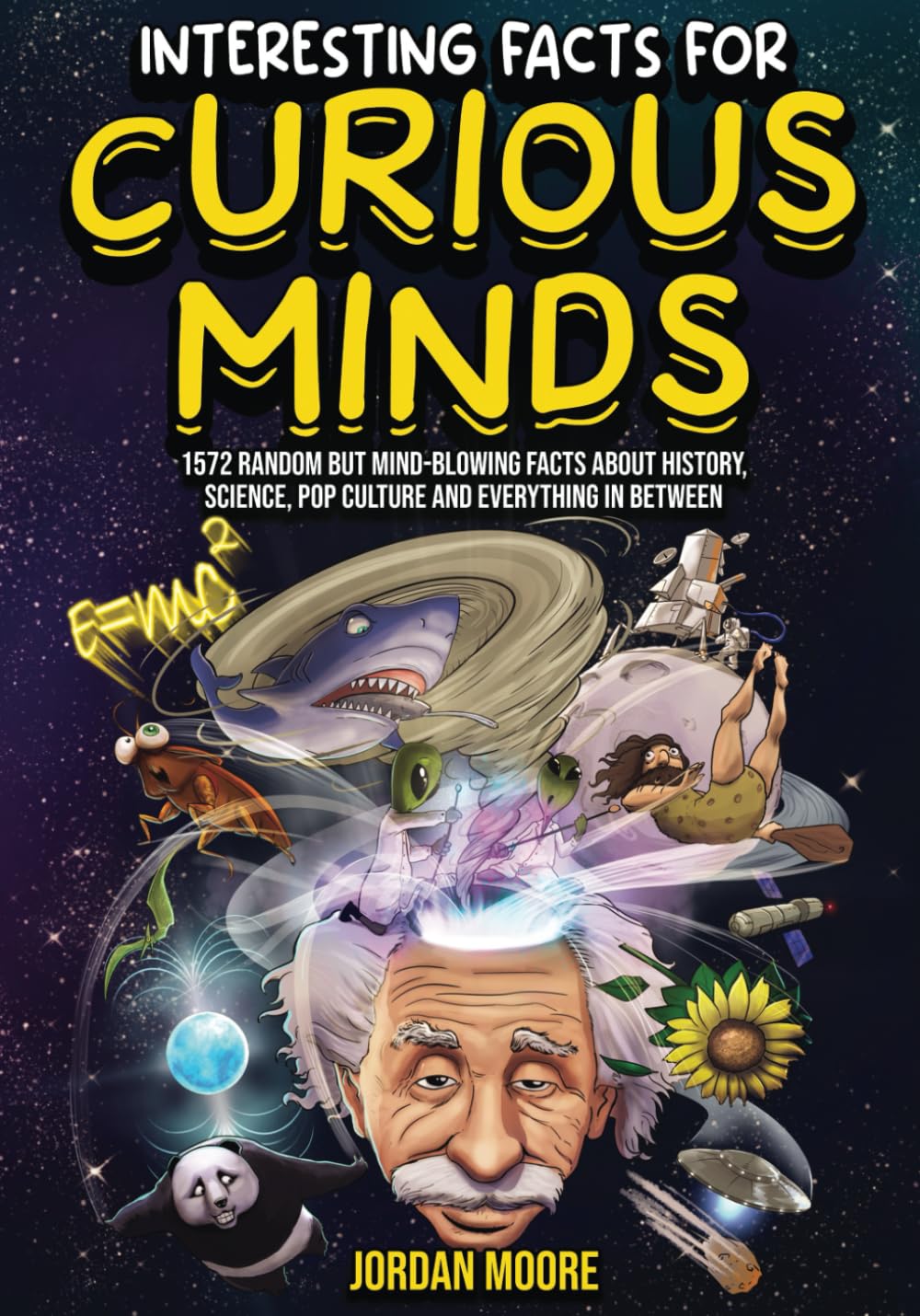
Interesting Facts For Curious Minds: 1572 Random But Mind-Blowing Facts About History, Science, Pop Culture And Everything In Between
He Didn’t Really Say That, Did He?
byHe didn’t really say that, did he? There are many famous quotes attributed to historical figures, celebrities, and fictional characters that have become part of our everyday lexicon. However, many of these well-known sayings have been misquoted, misinterpreted, or fabricated entirely over time. For instance, the iconic “Let them eat cake” is often associated with Marie Antoinette, yet no historical evidence supports that she ever uttered these words. In fact, the phrase was more of a symbolic representation of the perceived indifference of the French monarchy to the suffering of the poor, which contributed to the queen’s downfall. Similarly, most people believe that Sir Arthur Conan Doyle’s Sherlock Holmes famously said, “Elementary, my dear Watson,” but this exact phrase never appears in any of Doyle’s books. These examples demonstrate how historical inaccuracies and misunderstandings can influence the way we remember famous personalities and events.
In addition to misquotes, there are various linguistic phenomena that contribute to the spread of incorrect or humorous phrases. For example, a “malapropism” occurs when a word is incorrectly used in place of a similar-sounding one, often with comical results. Yogi Berra, the famous baseball player, was known for his humorous malapropisms, such as “I really didn’t say everything I said,” highlighting his quirky way of speaking. Similarly, characters like Ricky from the Canadian show Trailer Park Boys frequently used malapropisms, such as referring to his “mating name” instead of “maiden name,” further adding to the charm and humor of the character. These linguistic errors are often seen as endearing, but they also serve as a reminder of how language can evolve or be distorted in unexpected ways.
Another interesting language phenomenon is the “semantic change,” where the meaning of a word shifts over time. Take, for instance, the word “factoid.” Originally, it referred to a piece of information that was believed to be true but was actually inaccurate. Over time, however, the term has come to mean a small or trivial fact, regardless of its truthfulness. These shifts in meaning show how language is not static but constantly evolving based on usage and context. Similarly, “mondegreens” are misheard phrases or lyrics, often giving a new, humorous interpretation to the original meaning. For example, the famous line from Jimi Hendrix’s song “Purple Haze,” “’Scuse me while I kiss the sky,” is often misheard as “’Scuse me while I kiss this guy.” Such misinterpretations add a playful layer to language and contribute to the spread of these altered versions in popular culture.
The world of quotes and misattributions is vast, especially when it comes to famous individuals or well-known public figures. Many people have misattributed quotes to historical figures like P.T. Barnum, who is often credited with saying, “There’s a sucker born every minute.” However, there’s no concrete evidence that Barnum ever said this. This misquote has become part of his legacy, but its origin remains uncertain. Similarly, many of the sayings attributed to President George W. Bush, known as “Bushisms,” have been taken out of context or misunderstood. His quote, “I think we agree, the past is over,” from 2000, became a viral example of how public figures can unintentionally create memorable lines through verbal slip-ups. These instances highlight the ways in which language and meaning can be altered, whether intentionally or by mistake, influencing public perception.
In pop culture, the phenomenon of misquoted or misused phrases continues to thrive. The rise of the internet and social media has made it easier than ever for inaccurate quotes to go viral. A meme that circulates widely on the internet reads, “The problem with quotes on the internet is you never know if they’re genuine.” While humorous, this meme encapsulates the larger issue of how misinformation spreads online, especially when it comes to quotes. This highlights the importance of verifying the sources of the things we read and share online. Misquotes can have far-reaching effects, from influencing how we view historical events to shaping public opinion about certain figures. As a result, it’s essential to approach popular quotes with a critical eye, understanding that even widely accepted phrases may not always be accurate.
In conclusion, the world of quotes and sayings is far more complicated than we often realize. Misquotes, malapropisms, and misheard phrases contribute to the fabric of language, influencing both historical understanding and modern communication. Whether it’s the iconic “Let them eat cake” or the humorous missteps of public figures like Yogi Berra, these linguistic quirks are deeply embedded in our culture. They remind us that language is not only a tool for communication but also a reflection of how history is remembered and reshaped over time. The next time a famous quote is thrown around, it might be worth questioning where it actually came from and whether it’s the real deal or just another example of how words evolve.

